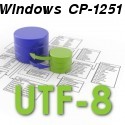It is ultra annoying, that in newest Debian and Ubuntu releases with GNOME 3 Desktop environment on every shutdown or restart you need to type in Super User (root) password, to authorize shutdown / restart.
Generally prompting for root password on GNOME restart is obviously a good think from security point of view, but from usability one – especially on notebooks it is useless annoyance…
So after changing this behavior I came up with this tiny article on how to get rid of GNOME Shutdown / Restart password prompt.
There is a click button (on left of Auth prompt on Shutdown showing URL to XML policy rule from where this behavior is controlled. A really good hint to where to look for to change those annoying behavior…
Here is how to change this new annoying behavior to old GNOME 2 default restart with no root password prompt .
linux:~# gedit /usr/share/polkit-1/actions/org.freedesktop.consolekit.policy
Find in XML source sections:
Restart the system when multiple users are logged in System policy prevents restarting the system when other users are logged in no auth_admin_keep
Stop the system when multiple users are logged in System policy prevents stopping the system when other users are logged in no auth_admin_keep
To change Restart and Shutdown GUI behavior to not prompt for password, you need to modify in above code:
After changes both sections should look like so:
<action id="org.freedesktop.consolekit.system.restart">
<description>Restart the system</description>
<message>System policy prevents restarting the system</message>
<defaults>
<allow_inactive>no</allow_inactive>
<allow_active>yes</allow_active>
</defaults>
</action><action id="org.freedesktop.consolekit.system.restart-multiple-users">
<description>Restart the system when multiple users are logged in</description>
<message>System policy prevents restarting the system when other users are logged in</message>
<defaults>
<allow_inactive>no</allow_inactive>
<allow_active>yes</allow_active>
</defaults>
</action>
That's all you finally get rid of the annoying prompt for root password. Enjoy 🙂





